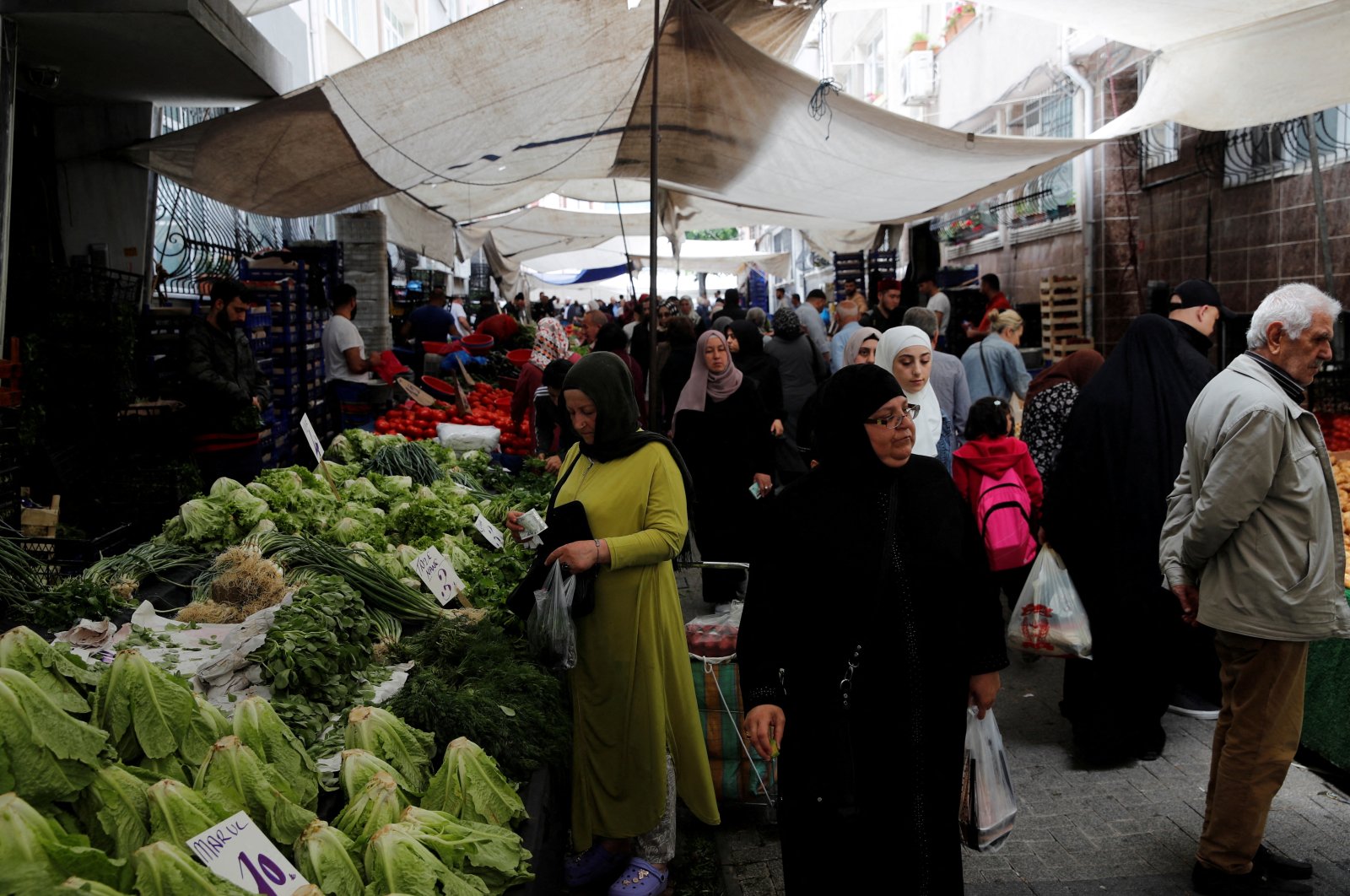
Vice President Cevdet Yılmaz on Sunday emphasized the necessity for an all-out battle against Türkiye's persistently elevated inflation, expressing optimism for a significant loss in momentum in the summer months.
The Turkish authorities have repeatedly said they expect inflation to continue rising by the middle of the year before entering a steep downward trend in the second half.
Yılmaz pinpointed May as the peak month for year-over-year figures, with a subsequent rapid decline expected over the following four months.
"We will see significant declines on a monthly basis, followed by annual declines," he told an interview with a private broadcaster Kanal 7.
Inflation, as measured by the Consumer Price Index (CPI), climbed to 69.8% in April, up from 68.5% in March. It came in a bit below expectations but marked the highest since late 2022 on strong rises in education, restaurant and hotel prices.
Monthly price growth, the Central Bank of the Republic of Türkiye's (CBRT) preferred gauge, was steady at 3.18%.
The bank on Monday said annual gains in food prices eased last month but stressed an increase in other groups, emphasizing that monthly price growth continued to be high in the service group.
Yılmaz said they anticipate a momentum slowdown during the summer months that will likely bring a 20% decline in inflation, attributing the primary impact to the government’s medium-term economic program efficacy.
The program, unveiled last September, seeks to help tame inflation, rebuild foreign exchange reserves and flip chronic current account and budget deficits to surpluses.
Yılmaz reiterated the forecast for further decreases in inflation next year, eventually reaching single digits by 2026.
The central bank sees inflation peaking at around 73%-75% this month and sees it slowing down to about 36% at the end of 2024.
Markets will closely follow CBRT Governor Fatih Karahan's messages during the unveiling of the central bank's second quarterly inflation report of the year this Thursday.
Yılmaz said the public would see a big relief after the summer.
"We have already started to see this in automotive and some other sectors. However, there is rigidity in food and services, which we are trying to break," he noted.
"Together with these, it will become more noticeable in the lives of our people. This does not mean inflation will be negative, but there will be a significant slowdown in the rate of increase."
The central bank, which hiked its benchmark one-week repo rate by 4,150 basis points since June last year, said on Friday that inflationary pressures remained alive.
Public savings measures
On the potential impact of the high-interest environment on Türkiye's real sector in the coming period, Yılmaz explained efforts to balance consumption, increase savings, and channel them into productive areas.
Responding to inquiries about potential savings measures, he stressed the necessity of a concerted effort against inflation, urging all sectors – public, private, and civil society – to contribute.
"We need to avoid unnecessary expenditures and consumption that we do not need," he said.
Last month, President Recep Tayyip Erdoğan said measures aimed at increasing public savings would be among the steps the government will announce soon to strengthen its economic program.
Yılmaz noted the ongoing efforts within the public sector to establish a robust monitoring system for the effective implementation of the savings measures.
"We are conducting a coordinated effort. We want to establish an effective monitoring system. We will not only announce it but also aim to establish a more effective system in terms of implementing it," he added.
Yılmaz revealed that they are meticulously evaluating everything from vehicle usage to the utilization of public buildings, document printing, and the conduct of ceremonies and educational activities, and promised to share the details with the public once finalized.
Responding to a query about reducing vehicle usage, Yılmaz commented, "Of course, there are discussions about vehicles. Not only vehicles but buildings ... If there is no need, why build new buildings? We are looking at how we can use existing ones more efficiently."
"The biggest saving is efficiency. Besides reducing spending, we are looking at how to make whatever spending we have more efficient."
